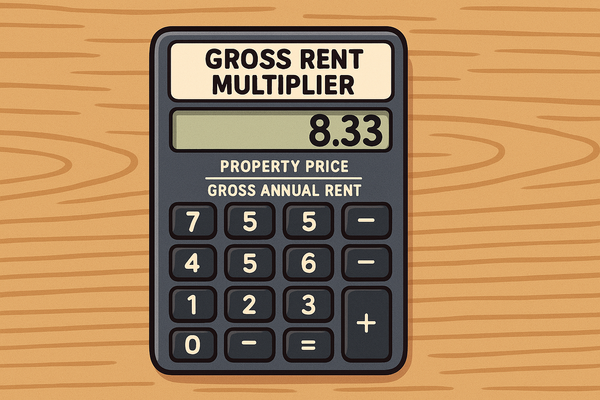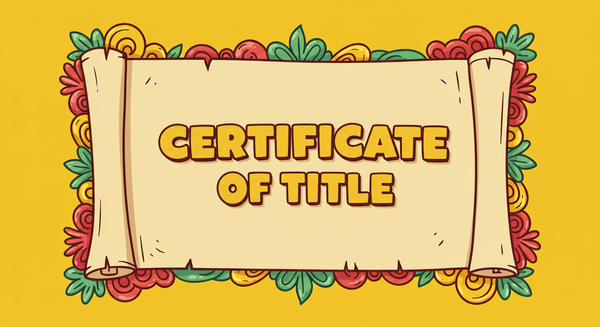Yes, Renters Pay Property Tax | Here's How
Yes, in one form of fashion or another, regardless of whether it is a commercial or residential lease, renters pay property tax

Whether you’re renting an apartment in Austin or running a café in Chicago, you’re paying property taxes—even if you’ve never seen a tax bill in your life.
It all comes down to how the lease is structured. So let’s unpack this often-misunderstood topic in plain language, with real examples, a touch of humor, and the kind of insight that saves you from surprise costs.
🏠 Residential Leases: You’re Paying—Just Not Directly
If you rent a house, condo, or apartment, you don’t write checks to the tax assessor’s office. But make no mistake: you’re paying the property tax—it’s just folded into your rent like caramel inside a candy bar.
🍫 Let’s Break It Down: The Snickers Analogy
Think of it like this: When you buy a Snickers, you don’t pay directly for the caramel or peanuts. But the price you pay includes them. It’s the same with real property tax—you’re buying the finished product (your monthly rent), and that product includes ingredients like:
- Property tax
- Insurance
- Maintenance
- Management fees
📊 Real-World Example
Let’s say your landlord pays $2,400/year in property taxes. That’s $200/month. If they want to clear $1,300/month in rent after expenses, they’ll charge you $1,500. That tax burden is now yours—indirectly.
Key Residential Tax Facts:
- Leases are usually gross leases (all costs included).
- Learn how rising property taxes can impact rent adjustments in residential leases.
- Homestead exemptions don’t apply to rental properties.
- Tax hikes = higher rent over time (especially if no rent control).
🏢 Commercial Leases: Where Renters Often Pay Directly
If you rent a commercial space, your lease agreement likely outlines tax responsibility—and in many cases, you’ll be paying directly or through reimbursement.
Here’s where lease type makes all the difference:
🧾 1. Gross Lease
- You pay one flat monthly rent.
- Landlord handles all expenses (taxes, maintenance, etc.).
- Simpler, but likely pricier.
🧮 2. Net Leases
- Single Net (N): Tenant pays property taxes in addition to base rent.
- Double Net (NN): Add insurance to the mix.
- Triple Net (NNN): Tenant covers everything: taxes, insurance, maintenance.
Think of a Triple Net Lease like a pay-as-you-go cell plan—you cover every cost line by line.
📐 Lease Clauses to Watch For:
- Base Year Tax Clauses
- Prorated Tax Clauses
- Advance Rent Provisions
Explore how property taxes influence cap rates and commercial lease profitability.
🗺️ Region Matters: Tax Rates & Local Laws
| State | Notable Factors |
|---|---|
| Texas | High commercial tax rates (1.83% avg), many NNN leases |
| California | Strong rent control, limits rent hikes despite rising taxes |
| Florida | Generous homestead exemption for owners—but not rentals |
Discover how property taxes impact build-to-rent developments and lease structures.
📜 Are Renters Required to Pay Property Tax?
Legally? In residential leases, no—you’re not sending checks to the IRS or county.
Practically? Absolutely. Renters pay property tax through rent, and if the property tax goes unpaid, the consequences can hit you too.
If a landlord falls behind, the government can issue a tax lien or even foreclose. As the renter, you could find yourself out on the street—even though you were never late with rent.
Learn about compliance requirements that intersect with property tax considerations.
💵 How Rent is Calculated to Include Property Tax
Landlords and real estate investors rarely set rent arbitrarily. They look at all property-related expenses, including:
- Real estate tax
- Insurance
- Maintenance
- Management software
- Mortgage interest
- Rental income
- Income tax obligations
Understand the connection between appraised value and property tax obligations.
🎯 The Bottom Line: Yes, Renters Pay Property Tax
- Residential renters pay indirectly—through monthly rent.
- Commercial tenants may pay directly, depending on lease terms.
- Your lease type, property value, and tax rate shape how much you pay.
- If taxes rise, so does rent—and your household income needs to cover it.
And remember—you won’t get a rebate if there’s a refund. Even if your rent helped cover it.
💬 Final Thought: A Tax You’ll Never See—But Always Feel
Rent is like a combo meal. You don’t get a receipt for each fry—but you still paid for them.
Same goes for property taxes. The property owner may get the bill, but your rent makes sure it gets paid.
Next time someone asks, “Do renters pay property tax?”—you’ll have the perfect answer:
“Not directly. But absolutely.”
❓ Frequently Asked Questions About Renters and Property Taxes
Do renters pay property taxes?
Yes. Renters pay property taxes indirectly through their monthly rent. Landlords typically factor in the annual property tax when setting rental rates, especially for residential properties. In commercial leases, renters may pay property taxes directly depending on the lease type.
What is the difference between direct and indirect property tax payments?
Direct payments mean the tenant pays the property tax bill to the government. Indirect payments happen when the landlord includes the cost of taxes in the rent, and the tenant pays without seeing the tax itemized.
What type of lease makes tenants responsible for property taxes?
In commercial real estate, net leases—especially triple net (NNN) leases—often make tenants responsible for paying property taxes directly, along with insurance and maintenance costs.
Do homestead exemptions apply to rental properties?
No. Homestead exemptions generally only apply to owner-occupied primary residences, not rental properties. This means landlords do not receive this tax break, and renters indirectly cover the full tax burden.
Can rising property taxes affect my rent?
Yes. If property taxes increase, landlords often raise rent to maintain their profit margin. This is a common reason for annual rent increases in both residential and commercial leases.





